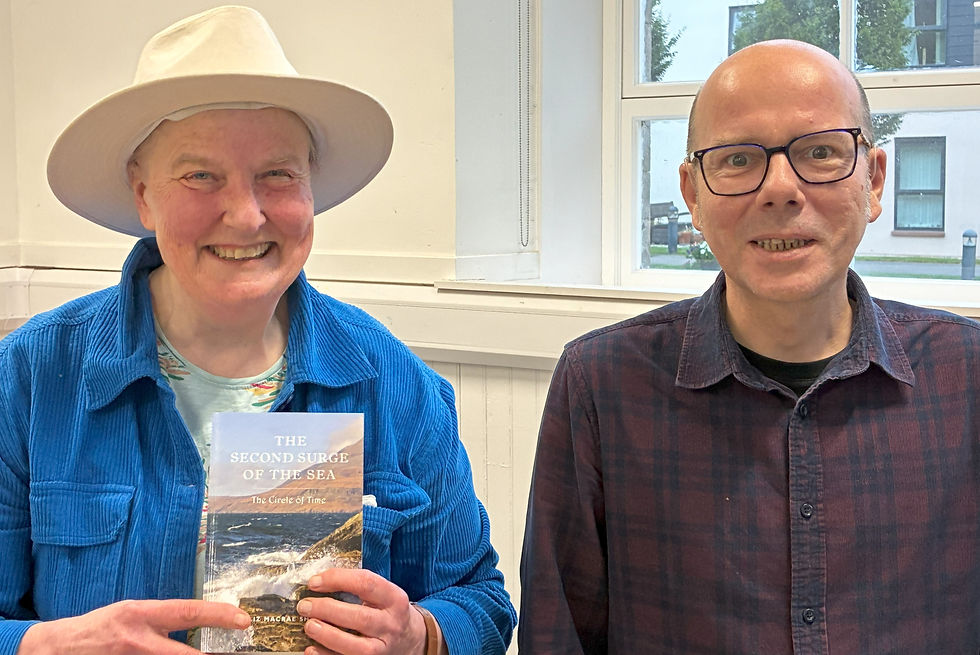An evening with Michael Longley
- John Dempster
- Aug 16, 2017
- 3 min read
The Salon had finished, but there were still people talking to Michael Longley as sat in the corner by the window.
Someone said to me ‘I don’t want to leave the room while he is still here.’

It was indication of the impact the revered Irish poet had on those of us attending last night’s event at the Glen Mohr hotel.
Workshop
In the first half of last night’s event, which was chaired by Paul Shanks, Chair of HLS, Michael Longley shared his thoughts on poetry with the benefit of a long lifetime’s wisdom. Including his first collection, publishing in 1969, he has so far issued 11 volumes.
He spoke of the need to await ‘the muse’, that stirring of the imaginative waters which gives the core idea and the creative energy to craft something living from it. The coming of the muse was always unpredictable, he said. In his experience, you ‘can’t write yourself out of a creative lock.’
‘If you’ve nothing so say, say nothing’ he advises. Many poets are, he warns, ‘good forgers’ producing work which is well-crafted, yet not breathed from the deepest level of the imagination.
Why should poetry always rhyme? Homer doesn’t rhyme, much of Shakespeare doesn’t rhyme? Poetry is not ultimately a matter of ‘technicalities’ he says. The only essential attribute of poetry is ‘rhythmic vitality.’
He spoke about his life as a writer. We heard about his first poem written when he was 16 for the lovely Patricia who melted his heart. He spoke about his friendships with other young Irish poets, as they spent time together and wrote together, each trying to outdo the others – he spoke of a convection current among the group as collectively they helped one another grow. ‘No poem,’ he said ‘is a solo flight.
He mentioned the fallow years in his 40s. This ‘middle stretch’ of life, when we’re living in a ‘generational sandwich’, coping with both young children and aged parents takes its toll. It was ‘wonderful to emerge from that – the muse returned.’
The poems of his later years have become much leaner, pared down to essentials: fewer words, but such emotion, such power.
Reading
After the break, Michael Longley read some poems, chiefly from his new collection Angel Hill. Angel Hill is mound near Kyle where his daughter the artist Sarah Longley lives and works – and ancient site, and a walled graveyard. Kyle has become one of the ‘soul landscapes’ in his life (the term is Samuel Beckett’s) gifted to him by Sarah, even as he gifted her as a child his beautiful Garden of Eden in Mayo, where he has a remote cottage at Carrigskeewaun.
He read poems about these places, about his children and grandchildren. He read us the poem he wrote to mark the passing of his close friend the poet Seumas Heaney. He read poems showing his love of place and nature.
He spoke of modernism, poetry only read and praised by other poets and academics as driving ‘the laity’ away. In contrast, all his work though profound, is accessible. I remember the story of how delighted Michael was to receive a letter from the widow of an ice-cream man who was murdered in the Troubles, and about whom he wrote a poem, saying how much she appreciated it.
It was a real pleasure for us all to meet Michael and his wife Edna last night.
This man in whose heart the muse is no stranger, who still experiences that ‘most exciting thing in the world, a poem coming along.’




Comments